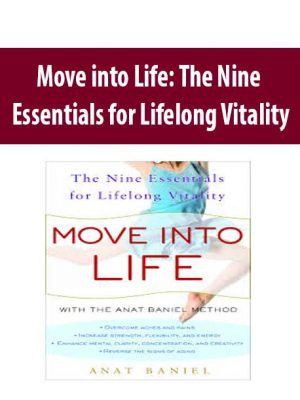Sarah Von Bargen – Make It Stick Habit School DIY
$97.00 Original price was: $97.00.$18.00Current price is: $18.00.
Proof of item:
You’re a smart, capable person who dreams of changing your life without constantly battling temptation and self-sabotage.
You know all of the bad habits are slowly adding up, but you’ve tried to break them before and it hasn’t worked.
You smell fresh donuts as you walk past the bakery and all of a sudden, you’ve bought half a dozen. You hear the buzz of a notification from your phone and then you’ve been scrolling Instagram for an hour. You feel the thrill of caffeine in your veins, so you drink two more lattes and now you’re $10 poorer and too wired to sleep.
You’re convinced you’re “not good at this stuff” and that good habits – drinking water, meditating, journaling – are things only “other people” can do.
You believe those bad habits that undermine what you want are “just how you are.”
Have you ever wondered …
- Is there some trick to becoming a morning person that I can’t figure out?
- I wish it felt easy to skip the fifth cookie and opt for carrots instead.
- What would life be like if those good habits and choices felt doable?
But it’s actually possible for you to have what you want: Good habits that feel easy, natural, and almost on auto-pilot.
Picture this – you’re happier, healthier, and more fulfilled because you’ve ditched your bad habits like a… well, you get the picture.
You get out of the bed and the first thing you do is settle into Lotus Pose to meditate – you’re not even tempted to look at your phone. You pad into the bathroom and see an orange bottle sitting on the sink and you take your medication – you haven’t missed a dose in five weeks.
At lunch, you feel the sun on your skin and the ground under your feet as you head out for a walk to get fresh air and clear your head. You’ve been taking these lunch hour walks every workday for months now and they’ve made such a difference in your mood, your productivity, and how you feel about afternoon meetings.
Here’s what you’ll learn in each of the 6 weeks:
Week 1: Introduction to the Science of Habits
- When you try to change too many habits at once, you’re more likely to fail
- Notice when you pick too many habits and understand how it makes you feel
- Make sure you’re changing a habit for THE RIGHT REASON (when you do it for the wrong reason, it’s not going to stick)
Week 2: Understanding Your Bad Habits
- Connect your habits to their physical and emotional impacts, it’s easier to change them
- Take responsibility for your actions and how they affect you
- Develop a taste for your good habits + their effects (or an aversion to your bad habits and their effects)
- Stop rushing through your feelings + denying how things affect you (P.S. this skill will have a ripple effect through your life!)
Week 3: Creating Good Habits
- Strengthen your resistance to temptation
- Tune into what ‘habit success’ will feel like, so you can drop into that feeling when you need it
- Feel good + proud WHILE you’re in the process of changing your habit, not just after you’ve done it
- Steal the exact strategy that Olympic athletes and CEOs use to change their habits
Week 4: Tracking Your Habit Progress
- Improve your relationship with yourself + build your self-trust
- Release your obsession with results – You can be proud of yourself NOW, not just about when you pay off the debt or when you can run an eight-minute mile
- Stay committed even after that first blush of excitement
Week 5: Understanding Your Triggers
- Understand all the triggers that trip you up so you can have a plan (this will help with literally EVERYTHING in your life)
- Remove guilt and moral judgement when you ‘screw up’
- Put good choices on autopilot so you don’t have to rely on self-control in the moment
Week 6: Building in Long Term Success
- Remove temptation once and for all
- Forge the neural pathways that connect the habit to the outcome, so it’s easier to stay on the wagon
- Free up the brain space you’ve spent resisting urges or forcing yourself to do “good” things and put that energy towards something else!
1 review for Sarah Von Bargen – Make It Stick Habit School DIY
| 5 star | 100 | 100% |
| 4 star | 0% | |
| 3 star | 0% | |
| 2 star | 0% | |
| 1 star | 0% |
Sorry, no reviews match your current selections
Q & A
Related products
Personal Development
Personal Development
Personal Development
Personal Development
Personal Development
Personal Development
Personal Development
Move into Life: The Nine Essentials for Lifelong Vitality – Anat Baniel
Personal Development














as advertised | Sarah Von Bargen – Make It Stick Habit School DIY